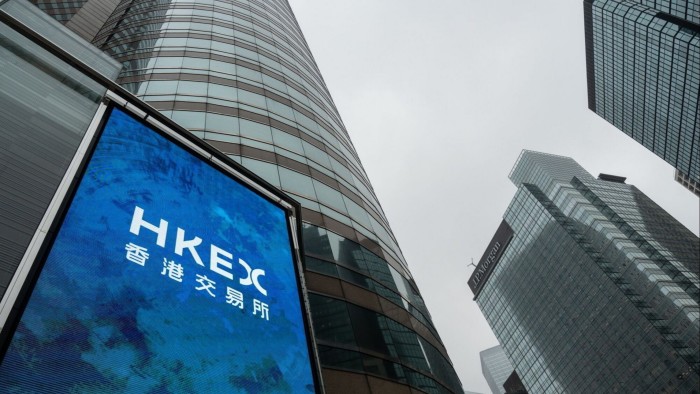Stay informed with free updates
Simply sign up to the Investment Banking myFT Digest — delivered directly to your inbox.
Chinese banks have been pitching to work on the blockbuster Hong Kong secondary listing of the world’s leading EV battery maker CATL for as little as 0.01 per cent in fees, highlighting cut-throat competition in a once-lucrative listings market where business has significantly slowed.
CICC and CSC are among the banks lined up for a leading role on the deal, which stands to be one of the biggest listings in Hong Kong in recent years. JPMorgan and Bank of America are also lined up for top roles.
Two people with knowledge of the matter said CICC’s pitch for a role on the deal had suggested they would be willing to work on it for fees of 0.01 per cent of the capital raised, which could ultimately top $7bn. Two people with knowledge of the matter said CSC had also pitched for a fee at around that level.
“I think in this market, competitors are willing to do things for almost nothing,” said a senior banker at an institution that pitched for a role.
Companies typically use the numbers from several banks’ pitches as a guideline when deciding how to set fees, rather than directly paying them the amount they pitched. The total fee pool can be shared unevenly between the banks.
CATL was planning to pay 0.2 per cent in underwriting fees, two people with knowledge of the matter said. Incentive fees on top of this — based partly on the value of the orders that each bank brings in — could make the final number higher, two people briefed on the deal said. Fees on large deals such as CATL’s listing can often be lower than on smaller ones, but figures below 1 per cent are unusual.
Morgan Stanley has estimated the CATL listing could raise up to $7.7bn, marking one of the biggest offerings in the territory in recent years and giving the Shenzhen-listed company access to offshore funds as it seeks to expand overseas. CATL announced its plans in December, with the listing expected later this year.
Bankers said Chinese banks were willing to accept rock-bottom fees on such a major offering as there was little business and the IPO market was yet to recover on the mainland. A director at a European bank who pitched said it was not a surprise to see the cut-throat pitches “given most of their China team onshore has lots of capacity but no deal flows”.
US banks are planning to work on the deal despite the Pentagon this month adding CATL — a supplier to Tesla, Volkswagen and Ford — to a blacklist of companies that it says are linked to China’s military.
Interest among some US institutional investors for an allocation has also not wavered, according to bankers involved. The defence department’s list only prevents those named doing business with the US military and has no direct legal ramifications, but it brings reputational risk.
CATL said in a statement it had “never engaged in any military-related business or activities”, the move was a “mistake” and was “expected to have no substantially adverse impact on our business”.
The battery pioneer shelved a previous plan to sell up to $5bn in Swiss global depositary receipts in 2023 following regulatory concerns over large-scale offerings.
On average, banks would pitch for or receive at least a single-digit fee on a Hong Kong listing, according to investment bankers and prospectuses filed to the exchange in 2024.
An executive at another bank that pitched for a role described the CATL listing as a “franchise-defining deal” and said bankers would want to be involved despite the low fees.
Banks also have an incentive to be in on the deal in the hope of future business with CATL, such as block trades that could be more lucrative.
“Everyone just wants credits on the league table, they’re not trying to make money on this deal,” said one senior Chinese banker familiar with the pitch. “It’s very annoying to see some peers sabotaging the norms, but there’s nothing we can do about it.”
Bank of America, JPMorgan, Goldman Sachs and CICC declined to comment. CSC and CATL did not respond to requests for comment.
Read the full article here

